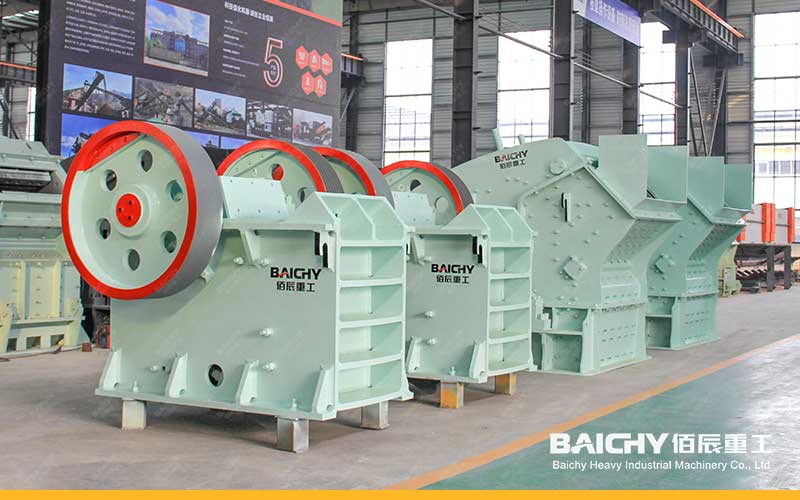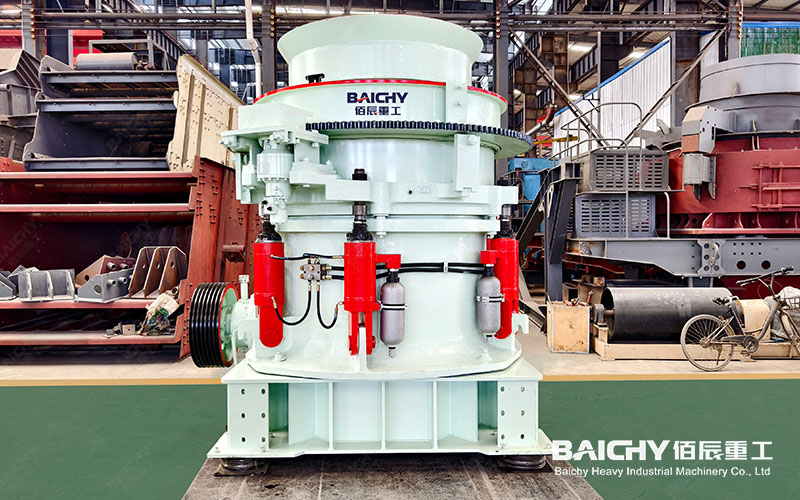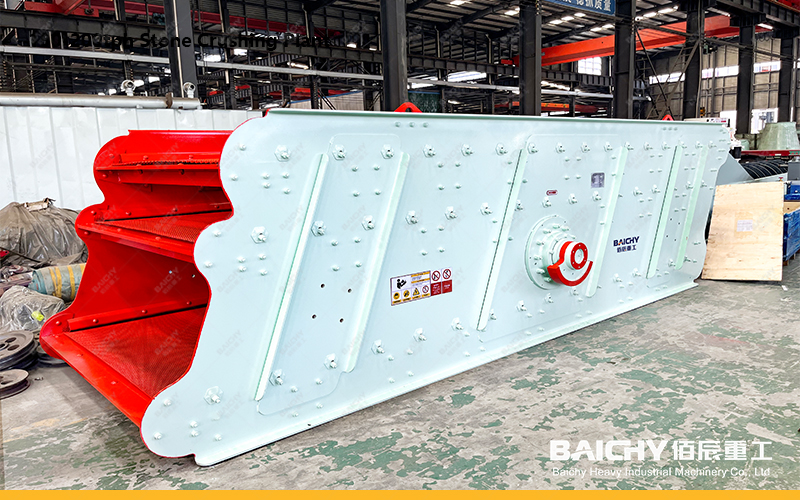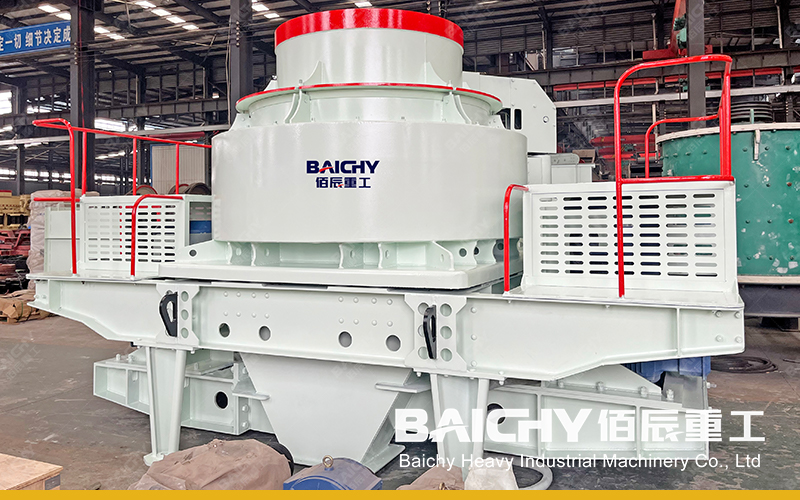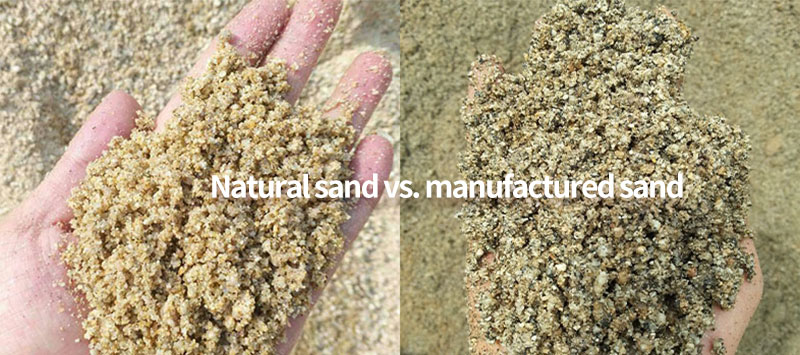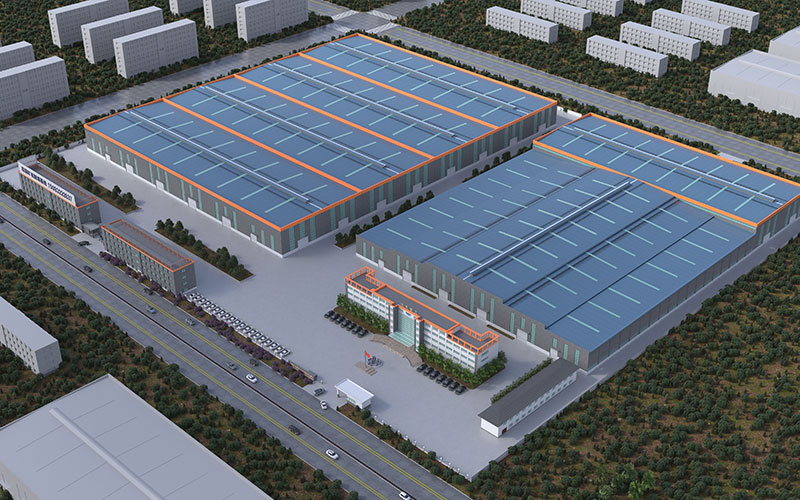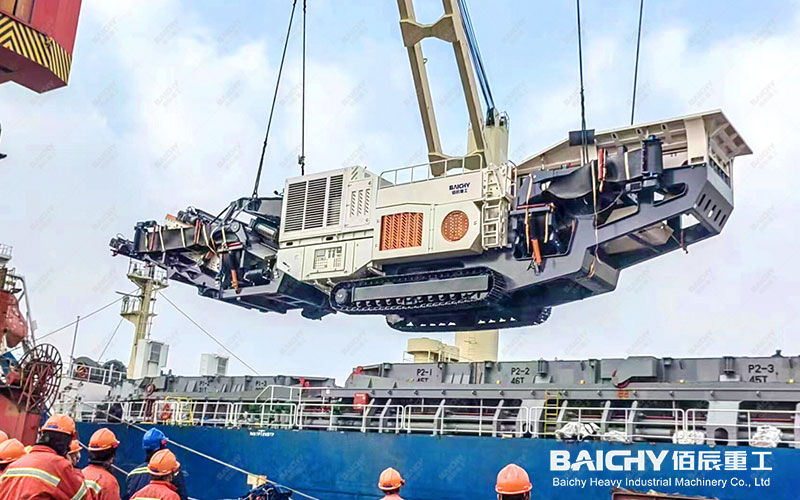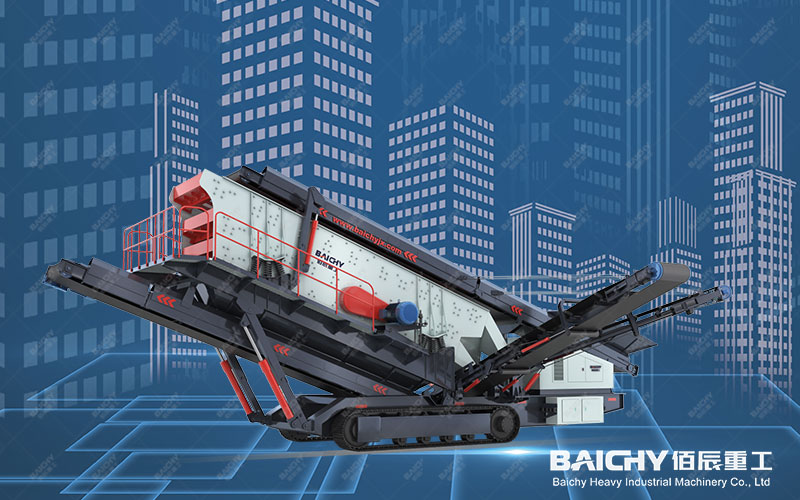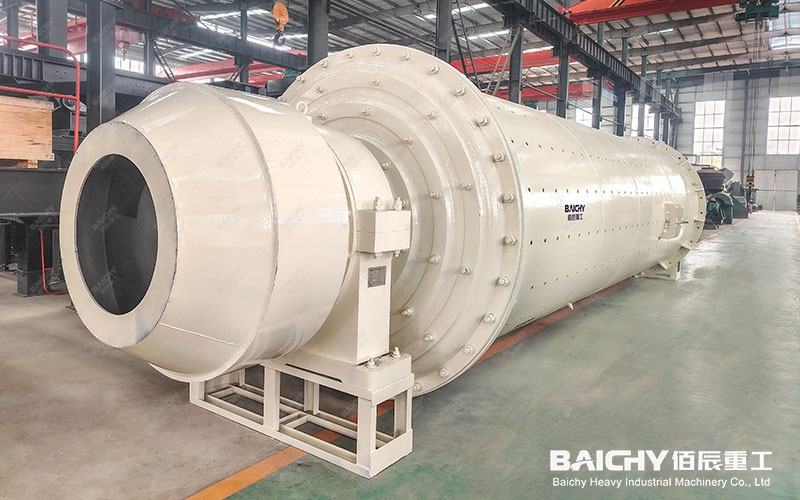Artificial sand (also known as machine-made sand) is sand particles processed by mechanical crushing, screening and other processes. The raw materials are mostly rocks, mine tailings, construction waste or industrial waste. Unlike natural sand (such as river sand and sea sand), the particle shape, size and gradation of artificial sand can be controlled by technical means to meet specific engineering needs.
Methods for making artificial sand Raw material selection: Select rocks with moderate hardness (such as granite, limestone), mine tailings or construction waste to ensure that the raw materials are clean (low mud content and no organic impurities).
Coarse crushing: The raw materials are initially crushed into coarse particles of 50-100mm by a jaw crusher.
Medium and fine crushing: Use a cone crusher, impact crusher or impact sand making machine to further crush the coarse particles to a smaller size (such as ≤30mm).
Screening: Separate particles of different particle sizes through a vibrating screen, and return the oversized particles to the crusher for reprocessing, and qualified sand particles enter the next stage.
Dust removal and cleaning of artificial sand (optional)
● Dust removal: Use bag dust collector or water mist to reduce dust pollution in production.
● Cleaning: If the raw material contains a high amount of mud, use a wheeled sand washer or spiral sand washer to remove impurities and improve the cleanliness of the sand.
Drying and storage: The cleaned sand is dried (natural drying or mechanical drying), and then stored in a closed warehouse to avoid moisture and pollution.
Application areas of artificial sand
● Concrete: Replace natural sand to prepare high-strength or special concrete.
● Building mortar: Used for masonry, plastering and other projects.
● Roadbed material: As a filler for road base.
● Industrial use: refractory materials, glass raw materials, etc.
Advantages of artificial sand
Resource reuse: Utilize tailings and construction waste to reduce environmental burden.
Controllable quality: Indicators such as particle grading and mud content can be optimized and adjusted.
Alleviate the shortage of natural sand.
Disadvantages of artificial sand:
High production cost (equipment, energy consumption).
More angular particles may increase the water demand of concrete, which needs to be solved by adjusting the mix ratio.
Artificial sand production can reduce damage to riverbeds and ecology, while promoting the resource utilization of construction waste, which is in line with the concept of sustainable development. There are significant differences between natural sand and machine-made sand in terms of source, characteristics, and application. The following is a detailed comparison of the two:
Source and production method
| Comparison items |
Natural sand |
Mechanical sand |
| Source |
Natural formation (riverbed, lake, ocean, etc.) |
Artificial processing (rock, tailings, construction waste) |
| Production method |
Natural weathering, water erosion |
Mechanical crushing, screening, cleaning |
| Raw materials |
Natural sediments (quartz, feldspar, etc.) |
Granite, limestone, construction waste, etc. |
Physical properties and composition
| Comparison items |
Natural sand |
Mechanical sand |
| Particle shape |
Smooth (long-term water flow erosion) |
Multi-angle (mechanical crushing) |
| Grading control |
Naturally formed, grading may be uneven |
Manually controlled, grading is stable and can be optimized |
| Mud content |
High (needs cleaning) |
Low (can be reduced to less than 1% by cleaning) |
| Water absorption |
Low (dense particles) |
High (multiple angles, high porosity) |
| Impurities |
May contain shells, organic matter, chloride ions, etc. |
Controllable ingredients, few impurities |
Why choose machine-made sand?
Resource sustainability: Solve the problem of natural sand shortage
Natural sand depletion
● Due to long-term over-exploitation, natural sands such as river sand and lake sand in the world have led to riverbed cutting, soil erosion, and ecosystem destruction (for example, mining has been strictly restricted in the Yangtze River and Pearl River basins in China).
● The raw materials of machine-made sand are extensive: granite, limestone, construction waste, mine tailings, etc. can be used to alleviate resource pressure.
Supply stability
● Natural sand is subject to geographical and transportation restrictions, and its price fluctuates greatly (for example, the price of river sand in some parts of China exceeds 200 yuan/ton).
● Localized production of machine-made sand: local materials can be used to reduce transportation costs and ensure stable supply.
Quality controllability: Optimize engineering performance'
Adjustable particle grading
Machine-made sand achieves continuous grading by adjusting the crushing process (such as impact sand making machine + screening), reducing the porosity of concrete and improving density and strength.
Case: High-strength concrete above C60 generally uses machine-made sand, which has a compressive strength 10%~15% higher than that of natural sand concrete.
Impurities and mud content are controllable
● Natural sand may contain harmful components such as chloride ions (sea sand) and organic matter, which require additional treatment;
● Through cleaning and dust removal processes, the mud content of machine-made sand can be controlled to less than 1%, avoiding the decrease in concrete durability.
Particle shape adaptability
Machine-made sand has many edges and corners and a rough surface. Although it increases the water demand, it can enhance the mechanical bite force with the cement paste, improve crack resistance and compressive strength.
Solution: Adding fly ash or water reducer can offset the effect of increased water demand.
Why choose Baichy Heavy Industry?
1. Deep technical accumulation, industry leading
● 20 years of R&D experience: Focus on deep technology in the field of mining machinery, and accumulate rich industry insights and solutions.
● 56 patented technologies: Covering key links such as equipment design and production process, reflecting continuous innovation capabilities and technical barriers.
● Market-proven star products: PFL series equipment has sold more than 5,000 units worldwide, with stable and reliable performance to meet diversified production needs.
2. Guaranteed service, worry-free for customers
① Extremely fast response mechanism:
● Engineers provide 7×24-hour online technical support to solve emergencies as soon as possible.
● Any site in the world within 48 hours to minimize losses.
②Long-term cost advantage:
● Core components are guaranteed for one year to reduce the maintenance cost of young people.
● Accessories are supplied at cost price for life to eliminate the problem of price compensation for late replacement.
3. Globalization, adapting to extreme working conditions
● Covering 150+ countries and regions: including Southeast Asia, Africa, South America and other markets, the verification equipment is widely applicable.
● Extreme environment test: It can still operate stably under groundwater conditions such as high temperature, high humidity, and high special zone, and has strong technical reliability.
4. Full-cycle service support to help efficient operation
● From installation to training: Provide professional on-site guidance installation and worker operation training to ensure rapid production of equipment.
● After-sales system: Improve maintenance, technical upgrade support, long-term operation of efficient equipment, and extend service life.
● Rights protection: Directly connect through official channels (official website: http:www.baichychina.com/WhatsApp:+86 15093222637) to avoid intermediate risks and enjoy genuine services.
